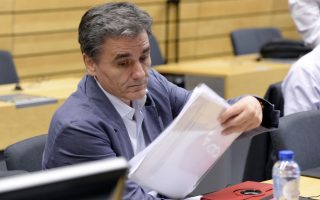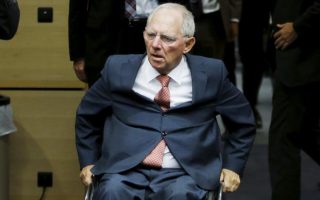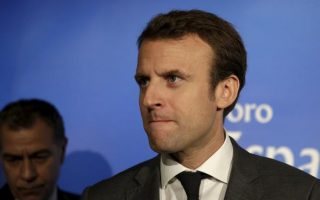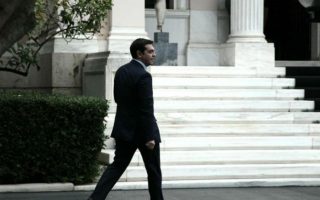Greece talks spill into second day as finance chiefs deadlock
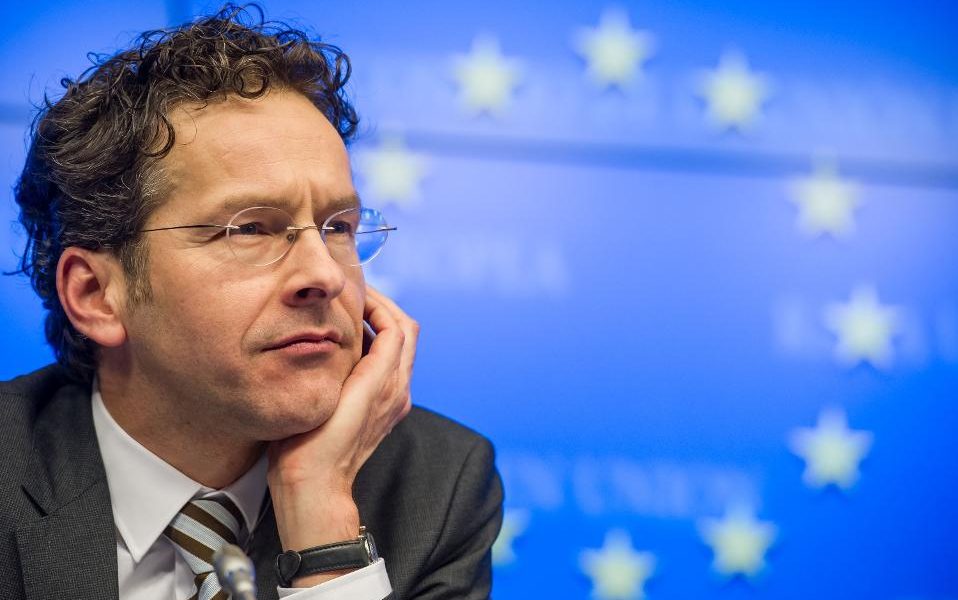
European finance ministers deadlocked over how to keep Greece in the euro, forcing emergency talks to continue Sunday and threatening to delay the infusion Prime Minister Alexis Tsipras desperately needs.
With Greece running out of money and its banks shut for the past two weeks, the hardline group led by Germany signaled that the country’s debt was too great, Tsipras’s reform proposals were inadequate and, in any event, the Greeks couldn’t be trusted to keep their word. Finance ministry aides will work through the night, allowing finance chiefs to reconvene at 11 a.m. in Brussels before a leaders’ summit.
“It’s still very difficult, but work is still in progress,” Dutch Finance Minister Jeroen Dijsselbloem, the head of the Eurogroup, told reporters after nine hours of talks that ended at midnight. “The issue of credibility and trust was discussed and also, of course, the financial issues.”
The skepticism expressed by the policy makers came hours after Tsipras won overwhelming support in the Greek Parliament for a package of spending cuts, pension savings and tax increases intended to win financial aid of at least 74 billion euros ($83 billion). Among its shortcomings, the proposals failed to reflect the economic deterioration since talks collapsed and capital controls were imposed two weeks ago, according to Dijsselbloem.
Their concerns were reflected by the media back home. Germany’s Frankfurter Allgemeine Sonntagszeitung reported a finance ministry proposal to suspend Greece from the euro area for five years. The idea was dismissed as illegal and nonsense by a European Union official who asked not to be named because the talks are private.
Finnish media reported the Helsinki government flatly opposed the bailout.
Finland’s opposition
“I don’t believe that we are at this point authorizing any kind of additional loan to Greece,” Finland’s Alexander Stubb said. “About half of members had the same stance as us and maybe a few had another view.”
Greece and its creditors are struggling for common ground after Tsipras missed a payment to the International Monetary Fund June 30 and allowed its second rescue package to lapse the same day. A new bailout will be Greece’s third in five years.
The five-month standoff between the former communist student leader, whose party translates to Coalition of the Radical Left, and his creditors deepened the country’s economic misery. Bank withdrawals are limited to 60 euros a day, pensions have been rationed and commerce is grinding to a halt.
Economic abyss
“The Greek economy is moving closer to the abyss,” Slovakia’s Peter Kazimir said before the meeting began.
While Greek government bonds rallied on Friday on optimism Tsipras’s package would lead to a deal, debt issued by its four largest banks remained below 40 cents on the euro, according to data complied by Bloomberg.
The prices suggest investors expect banks to restructure debt after the country’s economic crisis spurred depositors to withdraw about 40 billion euros between December and June.
The finance chiefs also rebuffed any talk of debt relief, a step that the IMF has backed.
“Debt relief is impossible,” Germany’s Wolfgang Schaeuble said on his way into Saturday’s meeting.
The country’s three creditor institutions — the IMF, the European Commission and the European Central Bank — earlier assessed the program positively as a basis for the bailout, according to a euro area official who spoke on condition of anonymity.
Moscovici’s hope
“There’s always hope,” European Union Economic Affairs Commissioner Pierre Moscovici told reporters.
The schedule for the summits of both the euro area and European Union leaders will be determined by EU President Donald Tusk after meeting Dijsselbloem Sunday morning.
The creditors still view the country’s reform proposals as insufficient to meet fiscal targets, Frankfurter Allgemeine Sonntagszeitung said, citing an assessment paper provided to euro area finance ministers.
Tsipras faces political antagonists not just in Berlin and Brussels but within his own party. More than a dozen SYRIZA members refused to back the plan, with some of them denouncing the harsh measures it prescribes less than a week after Tsipras won an anti-austerity referendum. The prime minister said after the vote that his priority would be to complete negotiations with the creditors on a bailout deal.
“It could have been better,” Spain’s Luis de Guindos said as he left the talks. “But it could have been worse.”
[Bloomberg]

